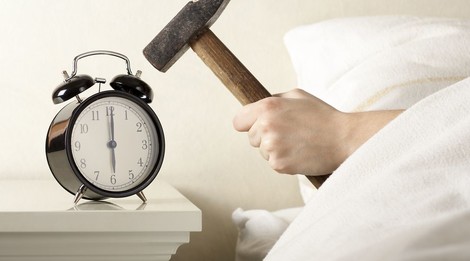Your podcast discovery platform
Curious minds select the most fascinating podcasts from around the world. Discover hand-piqd audio recommendations on your favorite topics.

piqer for: Deep Dives Global finds Globalization and politics Health and Sanity
Daria Sukharchuk is a journalist based in Berlin, where she works as a news anchor for Russian-language OstWest.tv. Her writing has appeared in Motherboard and ZEIT Online, Cosmopolitan, as well as Afisha (Moscow's leading city magazine). She specializes on the topic of human rights, migration, and mental health.
She has her BA in Chinese history, and, never having forgotten her history background, has also contributed to the educational project1917.com.
A Case For Accepting The 'Night Owls' And Stopping The Obsession With 'Early To Bed, Early To Rise'
Delayed sleep phase disorder is a condition when a person's "biological clock", or circadian rhythm, is behind the general population's. For people who have such a condition – like the author of this essay, Kate Shellnutt – falling asleep before 2am and waking up early is impossible. While most people would feel tired in the evening, she would experience an uptick in her creativity, and be at her most productive around midnight. But still, she felt a certain guilt and tried to fit in. Shellnutt has tried every tip in the book, from eliminating caffeine to listening to relaxing music and taking melatonin pills, but none of it helped. She would lay in bed awake and anxious until her usual bedtime.
Eventually, a psychologist confirmed that her condition was impossible to change. By then, she has already gotten a job which was adaptable to her unusual schedule.
Night owls like this are not uncommon. Many people have admitted to having this condition, but they still experience a certain bias at the workplace. Early rising is associated with virtue and commitment, while rising late and staying up at night is seen as childish and unserious. But this is simply not true. Forcing one to change their natural sleeping pattern can cause a lot of damage, and not have any positive impact on productivity or quality of life. Is it time we abandoned outdated norms and let the night owls sleep in?

As a night owl, I agree with every single word here. I didn't know it was an actual medical condition, but my life is definitely better when I can go to sleep at 4am, which fortunately is the case at the moment. Hopefully, articles like this will start to make a difference in business practices to tap our nightly talent. Thanks for the recommendation!